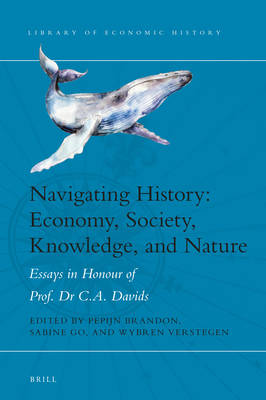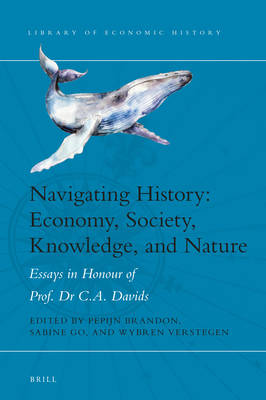
- Afhalen na 1 uur in een winkel met voorraad
- Gratis thuislevering in België vanaf € 30
- Ruim aanbod met 7 miljoen producten
- Afhalen na 1 uur in een winkel met voorraad
- Gratis thuislevering in België vanaf € 30
- Ruim aanbod met 7 miljoen producten
Zoeken
Navigating History: Economy, Society, Knowledge, and Nature
Essays in Honour of Prof. Dr. C.A. Davids
€ 243,95
+ 487 punten
Omschrijving
In Navigating History: Economy, Society, Knowledge, and Nature the contributors present new research that touches on the core themes developed in Karel Davids's work. The book reflects Davids's omnivorous character as a scholar. Nevertheless, there are common strands that run throughout the introduction and fourteen chapters gathered here. Major themes include resources of knowledge, cultures of learning, and humans and their natural environment. Together, these fourteen essays provide a fascinating panorama of social, economic, and environmental history of the past millennium. The book seeks to bring back the different levels of geographical scope, fusing the local, the national and the global.
Contributors are: Ulbe Bosma, Pepijn Brandon, Jaap Bruijn, Petra van Dam, Victor Enthoven, Sabine Go, Marjolein 't Hart, Raoul De Kerf, Jan Lucassen, Karin Lurvink, Joel Mokyr, Marijn Molema, Bert de Munck, Pál Nyiri, Harm Pieters, Matthias van Rossum, Joost Schokkenbroek, Jeroen Touwen, Wybren Verstegen, and Jan Luiten van Zanden.
Contributors are: Ulbe Bosma, Pepijn Brandon, Jaap Bruijn, Petra van Dam, Victor Enthoven, Sabine Go, Marjolein 't Hart, Raoul De Kerf, Jan Lucassen, Karin Lurvink, Joel Mokyr, Marijn Molema, Bert de Munck, Pál Nyiri, Harm Pieters, Matthias van Rossum, Joost Schokkenbroek, Jeroen Touwen, Wybren Verstegen, and Jan Luiten van Zanden.
Specificaties
Betrokkenen
- Uitgeverij:
Inhoud
- Aantal bladzijden:
- 376
- Taal:
- Engels
- Reeks:
- Reeksnummer:
- nr. 11
Eigenschappen
- Productcode (EAN):
- 9789004381551
- Verschijningsdatum:
- 25/10/2018
- Uitvoering:
- Hardcover
- Formaat:
- Genaaid
- Afmetingen:
- 160 mm x 236 mm
- Gewicht:
- 680 g

Alleen bij Standaard Boekhandel
+ 487 punten op je klantenkaart van Standaard Boekhandel
Beoordelingen
We publiceren alleen reviews die voldoen aan de voorwaarden voor reviews. Bekijk onze voorwaarden voor reviews.







